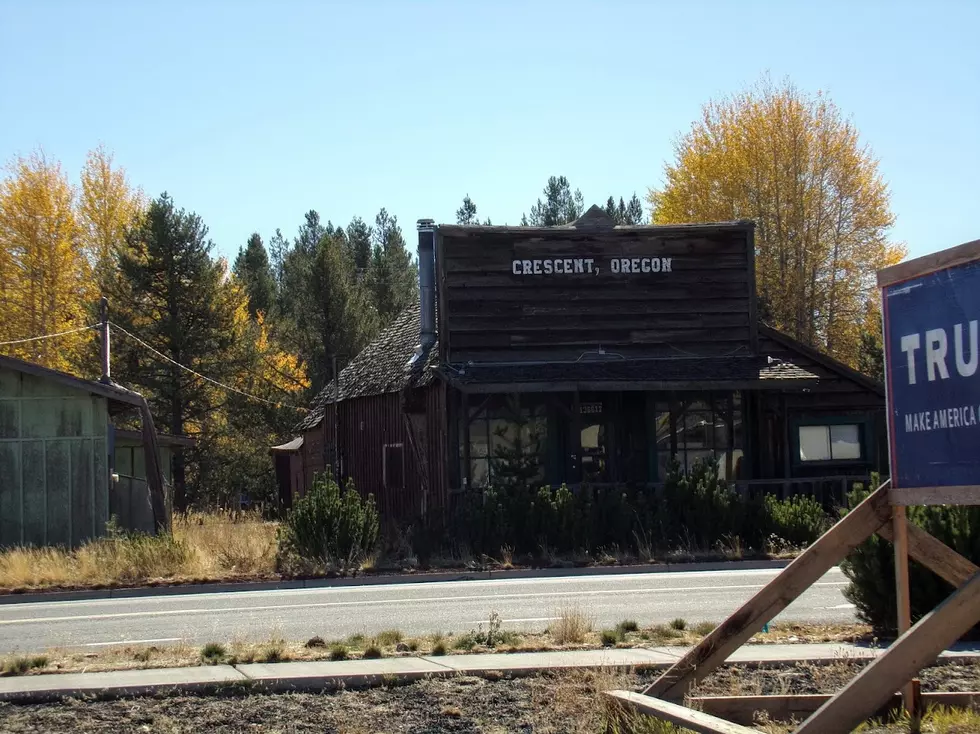
Radical Changes Coming for Idaho Property Taxes
Looking for some good reading? I realize people are pressed for time, but HB 741 could be the most monumental piece of legislation in Idaho in decades. This would eliminate nearly all of your property tax on an owner-occupied home. The sales tax would increase by almost two percent to cover the difference. Thousands of retirees could then stay in their homes. The only question I have is about the grocery tax, which isn’t going away just at the time food costs are skyrocketing.
Food riots were the cause of several North African governments being overturned a decade ago.
The Bill is a Long One
The bill being considered by state legislators is 41 pages long. What follows is a synopsis. It’s long but considerably shorter than the actual bill. State Senators Jim Rice and Scott Grow put it together for me in hopes of answering as many of your questions as they could anticipate.
Senators Hope the Following Answers Your Questions
I’m posting it in full. Please look it over (I’ll have a quiz later!)
HOMEOWNERS’ PROPERTY TAX REDUCTION ACT
PUBLIC TALKING POINTS
What does this bill do?
- This act eliminates an average of 65% to 70% of property taxes for all owner-occupied homes.
- For your savings, pull out your property tax notice and remove everything but bonds and school levies.
- It eliminates ALL property taxes on homeowners except for those taxes they can vote on (bonds and school levies).
- Taxes from counties, cities, highway districts, fire districts, community colleges, etc. are all eliminated – permanently.
Instead of this, why don’t you do something to address the cost of new schools and eliminate school levies?
- We can’t address everything at once.
- Bonds and school levies are voted on by the taxpayers. They choose to pay those fees.
- Taxpayers are NOT given the opportunity to vote on property taxes assessed by counties, cities, and other local taxing districts. Those budgets are set by taxing districts without any vote by taxpayers.
The state of Idaho had a huge surplus this year. Why didn’t you just use that surplus to reduce property taxes?
- It was a one-time surplus. One-time monies cannot be used to pay ongoing expenses.
Yes, but you certainly could have used some of it to reduce current property taxes. You could have increased state funding for public education or created a state fund to build new schools. That would have reduced property taxes. Why didn’t you?
- Let’s review how state spending is determined.
- The Governor recommends the budget to the legislature. The legislature proposes budget legislation. Then each bill has to be approved by each House of the legislature and then be signed by the governor.
- The governor’s priority was to reduce income taxes. He also chose to return the surplus from income taxes to those who paid that tax.
- Since the surplus, he has also budgeted hundreds of millions of dollars for transportation and school funding.
- He also wanted to pay off $200 million in bonded indebtedness.
- He did NOT choose to use any of the surplus for a reduction in property taxes.
- The legislature is passing bills consistent with the governor’s priorities.
Okay. Let’s get back to this property tax bill. Why don’t you just increase the homeowners’ exemption, or have school impact fees?
- Currently, there are only two ways to reduce residential property taxes: either reduce local budgets or shift to non-residential properties.
- An increased homeowners’ exemption merely shifts the residential property tax burden to commercial, agricultural, etc.
- School impact fees are just additional property taxes shifted to someone else.
- These ideas do not reduce property taxes. They just shift!
- This bill does NOT shift the property tax burden from one group to another, as past efforts have done.
Why is this bill necessary?
- With ever-increasing valuations on personal residences, homeowners are experiencing significant increases in their property taxes every year.
- They are being taxed on appreciation, even though that doesn’t give them an increase in cash to pay the taxes. No other tax does that.
- Older citizens are being taxed out of their homes.
- Higher property taxes increase monthly mortgage payments for ALL home buyers.
- Even when people have paid off their mortgages, property taxes mean that they still have to continue paying for their homes until they die.
Doesn’t this bill hurt renters?
- Property taxes for renters are not increased in any way by this bill. The current method for taxing rentals and commercial property is unchanged.
- In fact, this bill is designed to help renters who want to buy a home. It increases their ability to buy one.
- Renters and many young couples are having a difficult time qualifying for a mortgage to buy a home.
- Here is an example of how this bill would help them.
- If the property tax on a prospective home currently would be $3,000, this bill would reduce the tax by approximately 75%, or $2,250 per year.
- That would result in a reduction in the mortgage escrow of nearly $200 per month.
- As a result, the renter would be able to qualify to purchase a home with a smaller income.
What about poor people? This bill doesn’t appear to help them.
- We already have many safety nets in place to help the poor and those who are struggling financially.
- Hundreds of millions of dollars have recently been given to help those in need, including rental payments.
- In this session, we have already expanded the circuit breaker for the elderly with low incomes.
- This current bill is designed to relieve the financial burden of the MAJORITY of our taxpayers, the homeowners.
- Currently, the tax burden on local government costs and public services is primarily on the backs of the homeowners.
How will this reduction in property taxes be paid for?
- This property tax ELIMINATION is paid for by broadening the base; having all who use these public services pay for them, by increasing the sales tax.
- Non-residents would also contribute to the costs of the services they enjoy, including the Idaho roads they drive on, the food they buy, etc.
- Idaho residents would only pay a tax on what they choose to buy, rather than being taxed for just living in a house in Idaho.
Doesn’t this increase in sales tax place a burden on families?
- The reduction in property tax increases the amount of disposable income for homeowners.
- The $2,250 reduction in property tax from the example above, would allow the homeowner to spend more than $135,000 on purchases each and every year before the sales tax increase would affect them.
- Also, in times of economic stress, homeowners won’t have to deal with ever-increasing property taxes at a time when their personal incomes are decreasing.
How will the counties, cities, etc. receive the funds needed to pay their bills?
- Each month, the state of Idaho will distribute the funds from the additional sales tax to the local taxing agencies in the same ratio that they currently bear to each other.
- A reserve fund is established by this bill to ensure that they will not experience a decrease from their base budget in case of an economic downturn.
- Taxing agencies will also receive an increase each year based on growth in their districts.
- If the increase in a year is more than 10%, then that excess will be used to reduce property taxes for all non-residential
How will this increase in sales tax affect the sales tax on groceries?
- The credit that ALL Idaho residents receive as a refund on their state income tax returns will be increased from $100 per person to $175 per person: for every member of the household.
- To pay for that, there will be an additional .20% in sales tax.
- A family of four would receive an additional $300 in grocery tax credit. That means they could buy an additional $16,000 of groceries or whatever they choose, pay the additional 1.85% in sales tax on those purchases, and still come out ahead.
- This gives a greater financial benefit than the elimination of a sales tax on groceries, which typically only eliminates tax on healthy food, not everything else bought in a grocery store like paper and personal products, junk food, soft drinks, etc.
The press is reporting that Idaho will have the highest sales tax in the nation. Is that true?
- Absolutely NOT!
- The Tax Foundation is an independent organization that compares all taxes state by state.
- I am looking at their map titled: “How high are Sales Taxes in Your State?”
- This shows “Combined State & Average Local Sales Tax Rates as of January 2021.”
- In Idaho we have limited local governments from charging a Local Sales Tax.
- In the US, fourteen states have a combined sales tax rate of over 8%. Idaho’s combined rate would still be less than 8%.
- The average of the eight western states closest to Idaho that have a sales tax is 7.83%. Idaho’s tax would be 7.85%, right at the average!!!
- That includes the lowest sales tax rate of Wyoming, at 5.33%, and the highest rate being Washington, at 9.23%.
- We will be right in line with our western neighbors.
CONCLUSION:
What final comments would you like to make regarding this bill?
- This bill will give tremendous property tax relief to homeowners (about 75%) without shifting the burden to other property owners (commercial, rentals, or agriculture).
- Property taxes from local units of government would never again be placed on homeowners.
- Homeowners would not be taxed out of their homes.
- It Increases the ability of everyone to buy a new home, by lowering the monthly mortgage payment. This is especially helpful to young couples and those currently renting. (This would also help businesses trying to attract new employees who are concerned about the high cost of housing in Idaho.)
- Property taxes will NOT be shifted to commercial, rental, or agricultural properties.
- The budgets of these local taxing units would not be adversely affected: a reserve would be in place to protect them from recessions; annual budgets would be increased for the growth in housing; they would receive additional funding from sales tax when the economy was growing, and non-residential properties could as well.
- It gives a major boost to EVERY Idahoan. There would be increased buying power of $4,000 for every person in a family, before the increase in sales tax would affect them. It could be used not only for groceries but for whatever they choose to buy.
- Every homeowner that saved $2,000 on property tax (for example) could spend an additional $110,000 PER YEAR on other purchases and still not be adversely affected by the increased sales tax.
- EVERY individual in Idaho would have additional buying power, and non-residents spending money in Idaho would help pay for our local public services.
- This is a win for EVERY Idahoan.
30 famous people you might not know were college athletes
More From News Radio 1310 KLIX









